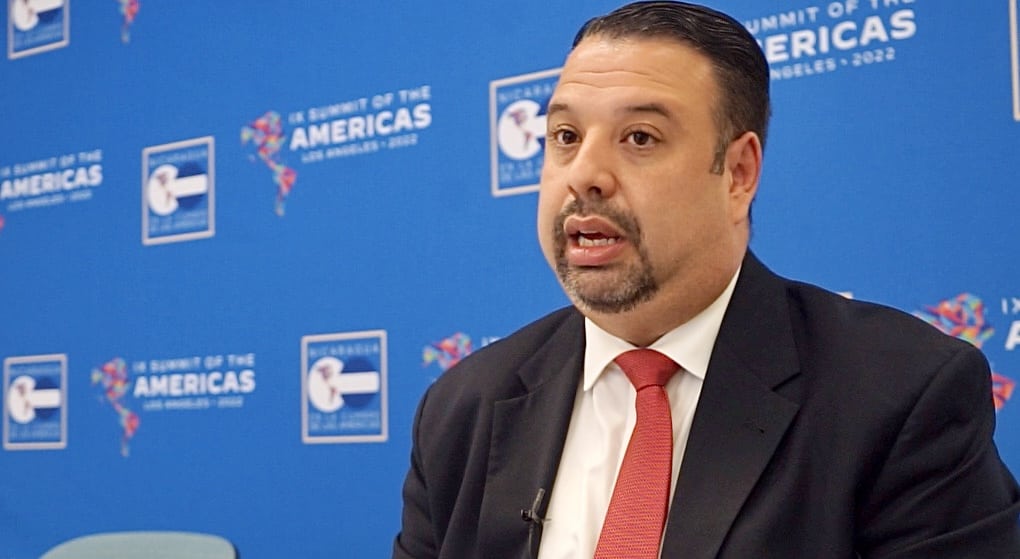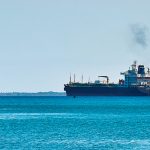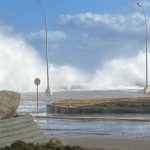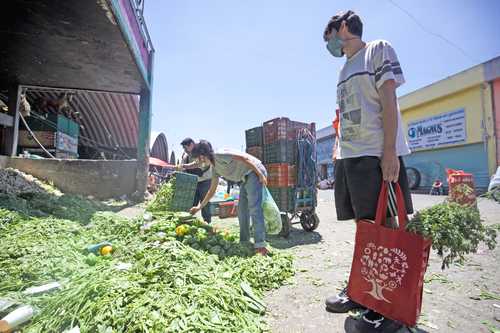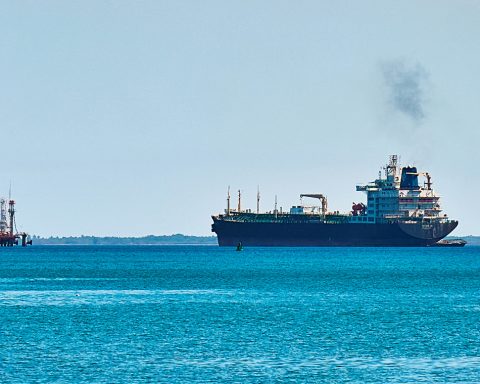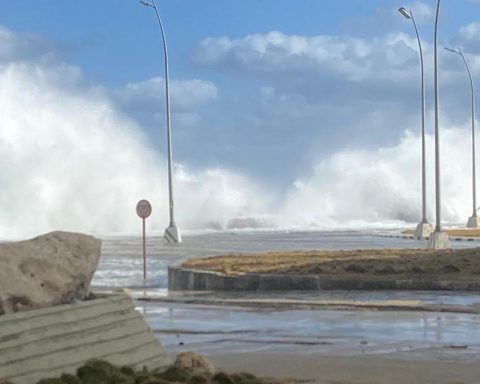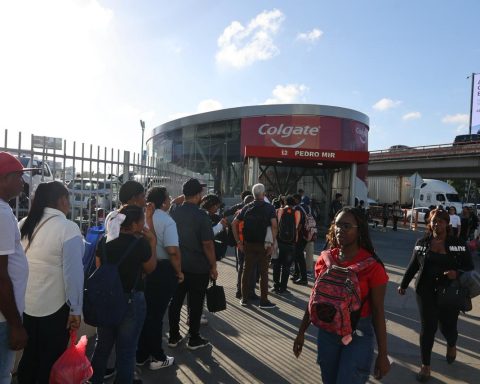The center of the city of Los Angeles, in California, looks more and more congested every day between the traffic, the closed roads, the police presence and the special security that surrounds high-ranking officials, leaders and representatives of all the countries of the continent who have come to the appointment of the IX Summit of the Americas this week, whose official inauguration took place this Wednesday, June 8, when the president of the United States Joe Biden, along with his wife and first lady Dr. Jill Biden, welcomed the leaders from the hemisphere who will remain in the city until Friday, June 10, once the high-level meeting scheduled every three years concludes.
Representatives of Nicaraguan civil society are part of the hustle and bustle of meetings, meetings, forums and demonstrations, whose main objective is to keep on the agenda of the Summit the urgency of the release of political prisoners in Nicaragua and the restoration of civil liberties, the democracy and respect for human rights in the country under the dictatorship of Daniel Ortega, who was not invited to the event, precisely because it is an authoritarian regime.
For Eddy Acevedo, senior advisor to the Wilson Center, an expert in national security and foreign affairs, it is right that these representatives are the voice of those who missed the Summit because they were imprisoned in Nicaragua for political reasons. These weeks marks a year since the arrest of former presidential candidates, civic leaders, businessmen, journalists, former diplomats, analysts and human rights defenders who used to attend events of this type to denounce the Ortega Murillo dictatorship. Most of them are in the cells of El Chipote, in isolation, under total confinement, with serious unattended medical problems, subjected to cruel and degrading treatment.
In an interview for the program Tonight Y CONFIDENTIALin Los Angeles, Acevedo also confirmed what Brian Nichols, Under Secretary of State for Western Hemisphere Affairs of the US State Department, has said these days: the sociopolitical crisis in Nicaragua is important for the Joe Biden government, especially, he considered, due to the significant increase in Nicaraguan migration to the US as of 2021, said the former staff member of Republican Congresswoman Ileana Ros-Lehtinen, and a former official of the USAID cooperation agency.
What expectations are there regarding the Summit and the results it can generate?
The region is coming together this week to talk about many issues that we have seen are very important. Number one, the issue of migration is very important for the Biden Administration, and for Nicaraguans, we have seen that the numbers of Nicaraguans on the (US) border have grown tremendously. For many years there was a focus on Guatemala, El Salvador and Honduras. People sometimes thought: ‘why not Nicaragua?’ Well, it was because the Nicas went to Costa Rica; but today we see that Nicaraguans are coming to the United States and are “voting with their feet”, trying to find freedom, (because they are) under a totally repressive regime in Managua. That’s going to be, I think, part of the focus.
One of the reasons why the regimes of Maduro, Díaz-Canel and Ortega have not been invited was for this reason: they are not democracies, they are tyrannical regimes, which are completely corrupt and criminal and have no part in this Summit.
And what is the impact of the presence of Nicaraguan exiles in the different civil society forums?
(It is) very important that Nicaraguan civil society be here in Los Angeles, during the Summit, this week, to give a voice to Nicaraguans who (un)fortunately cannot be here. But, we also have to say, why can’t they (those Nicaraguans) be here? It is because the regime has put many of them in prison, unjustly, for more than a year; and they are suffering, they don’t have access to food, they don’t have access to their families, they don’t have access to their lawyers, they don’t have access to priests and they don’t have access to healthcare.
I think it is important for all Nicaraguans who are here, on behalf of civil society, to carry that message that they, unfortunately, cannot be here, and about the reality that Nicaraguans are experiencing at this time in Nicaragua.
What has happened with the implementation of the Renacer Law? There are parts of the law, for example, that mention reports on Russian activities in Nicaragua, or the review of Nicaragua’s participation in the Free Trade Agreement with the United States.
The Renacer Law, and the same with the Nica Act, are two laws that were bipartisan, passed by the United States Congress. It is an issue that is very important; sometimes the regime tries to focus that these efforts are only from the Republicans in Miami, that is not the truth. The truth is that it is a very bipartisan issue, of the majority of Congress. Daniel Ortega has no allies in Washington, and it is important that the Nicaraguan people know that. We continue to push the Administration to apply the two laws, as soon as possible, so that we continue to pay attention and pressure against the regime.
But, who and how is the application of the law and the different tools it provides decided?
That is a decision of the Executive, the White House and the Treasury Department, and sometimes that takes time, I am not going to bore you with all the reasons why it takes time, but it does take time. And I recognize that the Nicaraguan people want to see more action. The actions are going to come; but, the help of the Nicaraguan people is also needed, they have to take leadership over the future of their country, and they cannot be depending only on actions, waiting for the actions of the United States.
US State Department Assistant Secretary of State for Western Hemispheric Affairs Brian Nichols said the US is preparing a new round of sanctions against regime officials. What can you expect? What would be the objectives, and the objective of this new round of sanctions?
It all depends on who or what is going to be included in that round of sanctions. We have to recognize that in the Trump Administration, and also in the Biden Administration, both have made very strong sanctions against the regime, and they will continue. I believe that for those who are in the leadership of Ortega, they are going to have to make a decision, or they want to continue (being) part of this regime, when they themselves are sanctioned and their assets may be frozen, or they want to be part of a change in Nicaragua.
Is President Joe Biden’s policy adjusting or reconfiguring itself with respect to the treatment and care that Nicaragua deserves, or is what we have seen so far going to be maintained?
I believe that the Biden Administration has sent a very strong message, that it did not invite Ortega, or Díaz-Canel, or Maduro to this Summit. That was a very important message and we must support it, that decision, and continue pushing for (there to be) more actions against the regime.
And in what way does the migratory flow of Nicaraguans towards the United States influence US policy on Nicaragua? Does it give it more priority? Does it cause greater concern or, perhaps, more caution about what can be done to contribute to the resolution of the crisis in the country?
I think it makes it a higher priority, because before on the issue of Central America, when we talked to different leaders in the White House and in Congress, they always focused on the numbers on the border and where those people came from. I think that sends a very important message, that they have to pay attention to the issue of Nicaragua, like other countries, because people will keep coming if the suffering continues and grows. This is an opportunity for all of us in the region, and the international community, to work together at the same time on how to bring democracy to Nicaragua.
Is the United States going to keep Nicaragua in the same bag as Cuba and Venezuela, or is it going to receive different treatment?
I think it will be both. For policy reasons, (for) us it is better to group the three countries of Cuba, Venezuela and Nicaragua, because we see that each people in each country is receiving a suffering very similar to the other. Sometimes a policy of all three is needed, because how is someone going to have a strong policy against Ortega and then be allied with Maduro? That does not work. I think there are going to be moments where that grouping (of the three countries) is going to happen. But, we are also going to see on the subject of sanctions… how the international community is going to come together, and it is going to do it, in bilateral ways, directly against one country or against the other.
